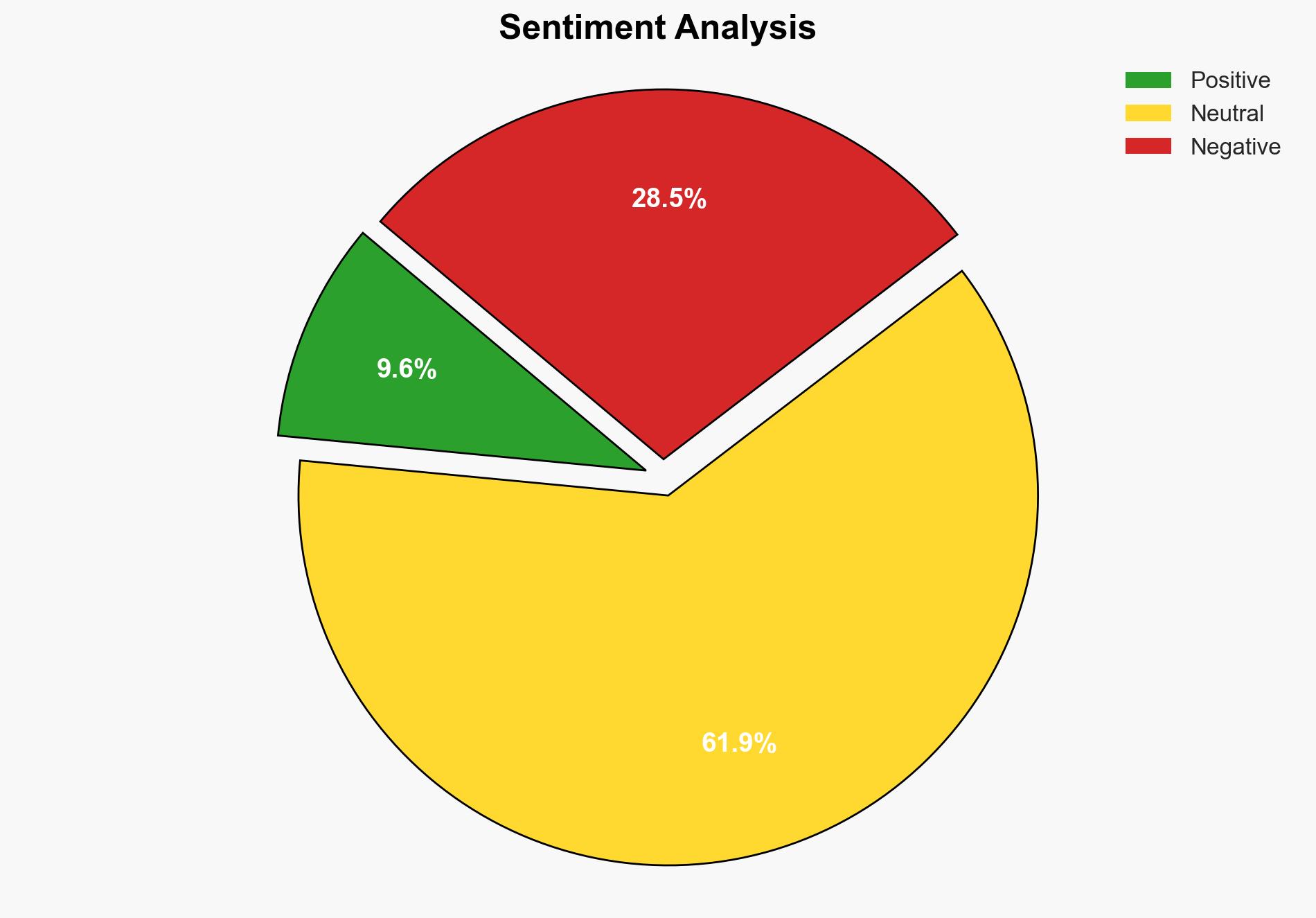Israel warns Lebanon after first rocket attack since ceasefire – BBC News
Published on: 2025-03-22
Intelligence Report: Israel warns Lebanon after first rocket attack since ceasefire – BBC News
1. BLUF (Bottom Line Up Front)
The recent rocket attack from Lebanon into Israel marks the first significant breach of the ceasefire agreement, escalating tensions between the two nations. Israel responded with multiple airstrikes targeting Hezbollah positions in southern Lebanon. This development threatens the fragile truce brokered by international partners and poses a risk of renewed conflict in the region. Immediate diplomatic engagement and military restraint are recommended to prevent further escalation.
2. Detailed Analysis
The following structured analytic techniques have been applied for this analysis:
General Analysis
The rocket attack from Lebanon into Israel and the subsequent Israeli airstrikes represent a significant escalation in hostilities. The attacks occurred despite the ceasefire agreement, highlighting the challenges in maintaining peace in a region with deep-seated historical conflicts. The involvement of Hezbollah and other armed groups in Lebanon complicates the situation, as these groups have significant influence and military capabilities. The Lebanese military’s efforts to dismantle rocket launchers and deploy additional troops in the south indicate a commitment to maintaining the ceasefire, but the effectiveness of these measures remains uncertain.
3. Implications and Strategic Risks
The escalation poses several strategic risks, including:
- Potential for a broader regional conflict involving other actors such as Iran and Palestinian factions.
- Increased pressure on the Lebanese government to control armed groups, risking internal instability.
- Economic repercussions due to disrupted trade and investment in the region.
- Humanitarian concerns with potential displacement and civilian casualties.
4. Recommendations and Outlook
Recommendations:
- Engage in immediate diplomatic efforts to reinforce the ceasefire and prevent further hostilities.
- Enhance intelligence-sharing mechanisms to monitor and preempt potential threats.
- Support Lebanese government efforts to strengthen military control in southern Lebanon.
- Encourage international partners to provide humanitarian aid to affected communities.
Outlook:
Best-case scenario: Diplomatic efforts succeed in reinstating the ceasefire, reducing tensions, and stabilizing the region.
Worst-case scenario: Continued hostilities lead to a full-scale conflict, drawing in regional powers and causing widespread instability.
Most likely scenario: Sporadic skirmishes continue, with intermittent diplomatic interventions preventing full-scale war but failing to achieve lasting peace.
5. Key Individuals and Entities
The report mentions significant individuals and organizations involved in the conflict:
- Joseph Aoun
- Nawaf Salam
- Hezbollah
- UNIFIL





